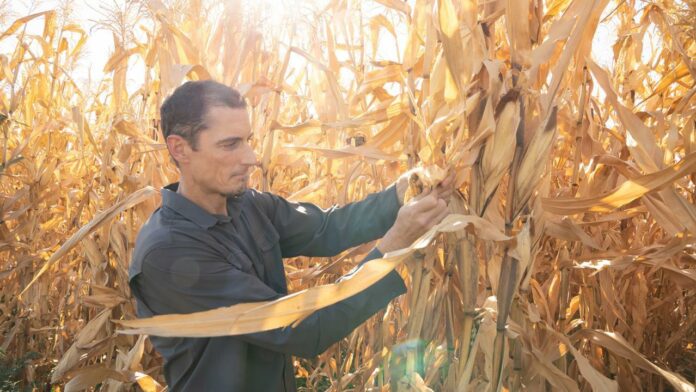Ross-Ibarra’s research on maize is recognized for its contributions to the evolutionary genetics of maize and related crops
By RODRIGO VILLEGAS — campus@theaggie.org
The National Academy of Sciences (NAS) recently awarded the 2024 NAS Prize in Food and Agriculture Sciences to Jeffrey Ross-Ibarra, a UC Davis professor in the Department of Evolution and Ecology.
“I was pleasantly surprised and happy,” Ross-Ibarra said. “I’d like to think [the award recognizes] that some of the more basic evolutionary biology we’re doing is recognized as being useful.”
According to the NAS website, the award is given to a “mid-career scientist at a U.S. institution” whose research contributes to agriculture or the understanding of the biology of a species important to agriculture or food production. In the case of Ross-Ibarra, the award recognizes his research on maize.
Ross-Ibarra’s lab uses maize as a “model system” to research a variety of topics. Some of these pursued topics include a better understanding of adaptation among other plants, work on genome evolution, as well as how crops have adapted to modern breeding and have coevolved with humans.
Though Ross-Ibarra received the award, he recognized that his research was a collaboration between both his lab and other teams within the maize community.
“I also felt quite a bit of gratitude because it’s certainly not a one-man show,” Ross-Ibarra said. “We wouldn’t be here without the collaborators, so it’s a nice recognition of their efforts as well.”
Ross-Ibarra also mentioned that his team currently works with 25 different labs in locations such as Mexico, Finland and Germany to grow corn and understand how it adapts to their environment. His lab primarily functions as a computational biology lab, but the partnerships provided opportunities to share resources and data from specialized techniques that they couldn’t do as a single lab.
Rubén Rellán Álvarez, assistant professor in the Department of Molecular and Structural Biochemistry at North Carolina State University, and his team were one of several groups that collaborated with Ross-Ibarra. Rellán Álvarez’s team evaluated samples for physiological and metabolic changes.
“You are combining techniques and approaches that are very specialized, so it’s hard to have a single lab that can do all those different approaches well,” Rellán Álvarez said. “All of those [specialized approaches] combined can give you a better overall picture of the evolutionary and physiological processes that you are interested in.”
He further spoke about Ross-Ibarra’s ability to establish thriving partnerships with teams around the world to enhance each other’s research.
“[Ross-Ibarra] has been very successful at building fruitful and productive collaborations with colleagues all over the U.S. and around the world,” Rellán Álvarez said. “When you see a group like [Ross-Ibarra’s] that has been able to collaborate with folks from different universities, across different fields and across different countries — that tells you that it’s not a coincidence.”
Sherry Flint-Garcia, research geneticist for the Agricultural Research Service of the United States Department of Agriculture, agreed with the sentiment. She commended Ross-Ibarra’s talent for bringing people together, citing it as one of the many reasons why he won the award.
“One of the cool things about working with Dr. Ross-Ibarra is that he’s a really cool person,” Flint-Garcia said. “He’s got a good sense of humor, he treats his people well — he is a good collaborator both scientifically and as a person. That’s not an extremely common characteristic.”
She described Ross-Ibarra as someone who knows when to approach his work with earnestness, yet possesses a lighthearted personality that shines through his puns and quirks.
“Remember, for every corny joke, there’s always a kernel of truth,” Flint-Garcia said. “[Ross-Ibarra] has these hilarious jokes and puns about corn. He has this ability to keep things light, but at the same time he gets very serious and down to the science.”
Though she considers Ross-Ibarra to be a very fun person, she also acknowledged his extensive knowledge of evolutionary biology and his ability to analyze data.
“He goes back in and he is able to take that data set and do a lot more, squeezing more information and more results out of data sets,” Flint-Garcia said. “He has done a lot of really nice science, a lot of high-caliber papers, and [has pushed] a lot of the evolutionary genomics.”
Ross-Ibarra hopes that his research provides valuable insights into plant adaptation for the future and the understanding of humans’ coevolution with crops that we interact with.
“I’ve long thought that evolutionary biology can contribute to thinking about agriculture,” Ross-Ibarra said. “This [award], at least for me, is some validation of that.”
Written by: Rodrigo Villegas — campus@theaggie.org









